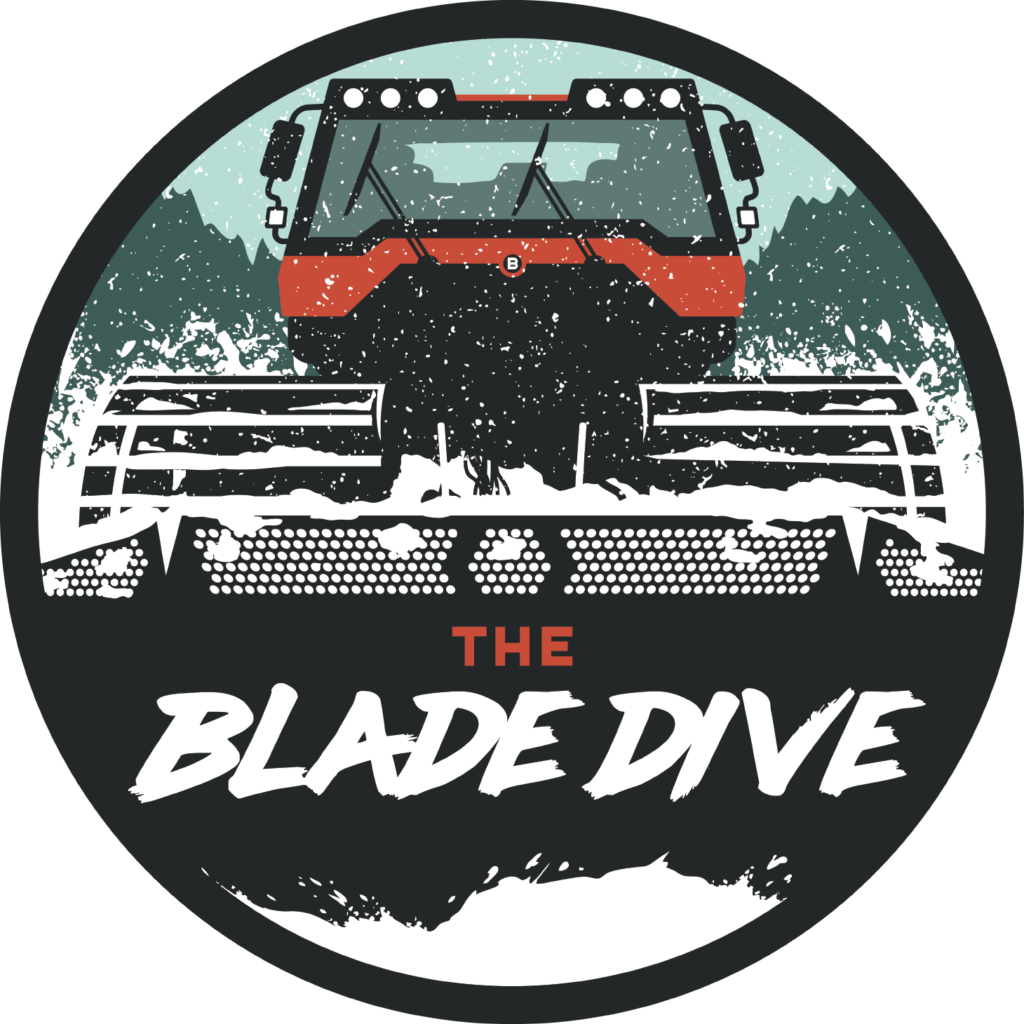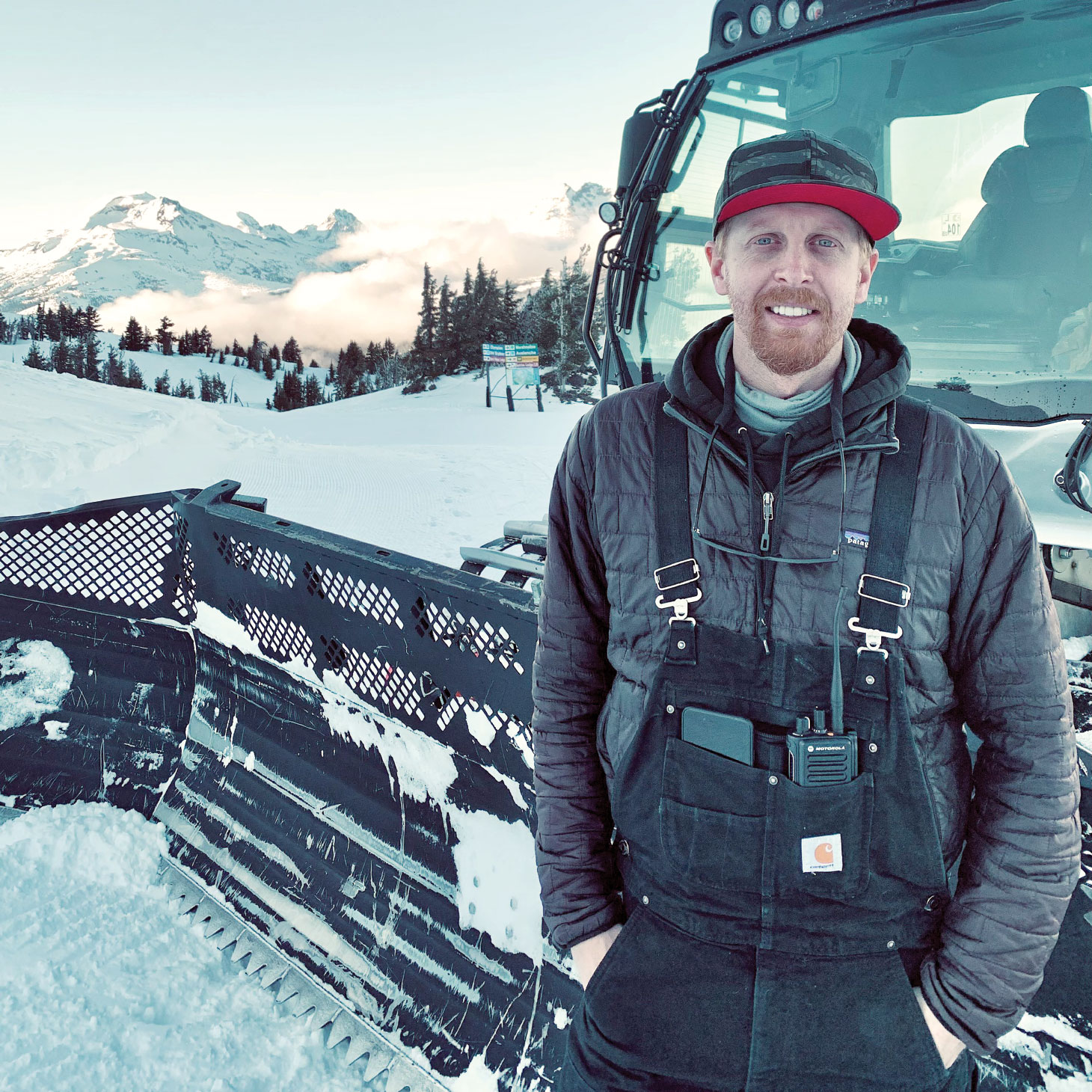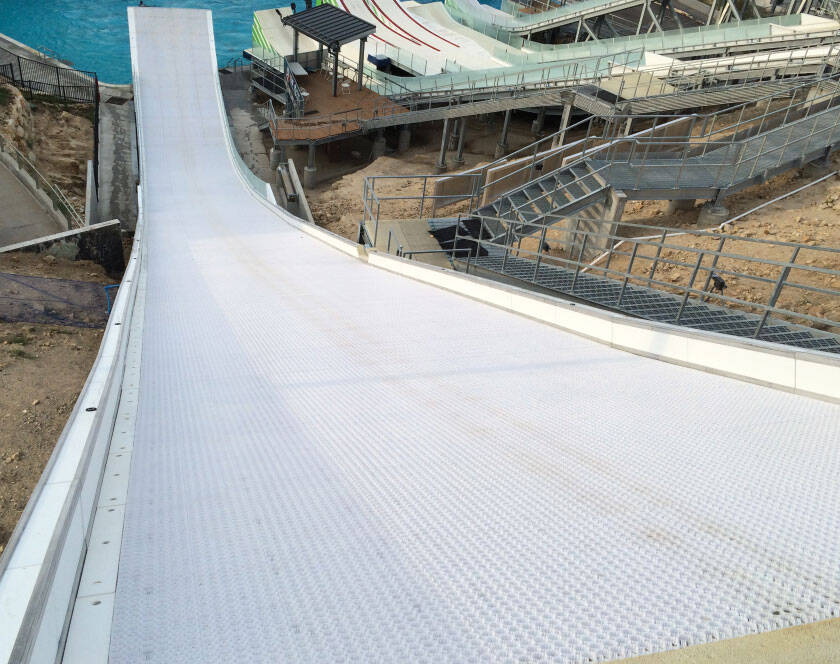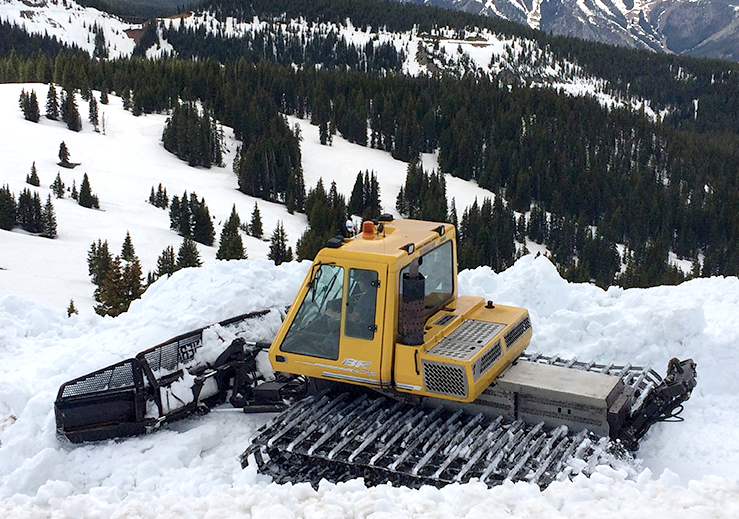Every operator has experienced the frustration of a blade dive while operating a snowcat. “It’s when the blade dives unexpectedly into the surface of the snow, creating a divot,” said Parker Bohon, host of the eponymously titled podcast, “The Blade Dive.”
“Simply put, it’s a hole that you have to fill. So, when guests share where they’ve struggled personally and professionally, it resonates with many people. It’s the primary reason behind the name.”
Bohon says the podcast is a humbling project to produce. “Listening to these stories as each person shares their experience of what it was like to struggle with divorce or mental health or being the only woman on the crew. I want to discuss those issues because they’re real.”
While Bohon’s career in the snow industry has spanned 16 years and two continents, his passion for the industry began much earlier, growing up in Johnson City, Tenn. “It started at the Appalachian Ski Mountain in North Carolina,” said Bohon. “We couldn’t afford it in high school, so the questions were always, ‘How do we get on the hill? How do we get access?’”
Bohon would go to great lengths, albeit not always in the most traditional manner, to access the ski area and explore his interest in snowboarding. He eventually volunteered on the mountain’s park crew and later landed a day job there.
“The goal was always to get out west,” he said. Bohon took a semester off college and moved to Mammoth Mountain Ski Area in Mammoth Lakes, Calif., where he worked as a lift operator. During this time, he connected with a local terrain park manager, Jeremy Cooper. “[Cooper] and I stayed in touch as I went back to finish college, and he promised me a job,” said Bohon. “So, when that day came to fruition, I ended up on the terrain park day crew at June Mountain Ski Area.”
A year later, Bohon finally got the opportunity to run a snowcat for the first time after Cooper was unable to find a candidate for an operator job. Even though Bohon says he was a complete rookie, he got the seat. “I operated a Bombardier BR275 Snowcat,” he said. “It was an old piece of machinery, and in hindsight, now makes me appreciate more the advancements in machines we operate today.” Bohon had plenty of time to practice and hone his skills because of minimal park traffic.

“It allowed me to see what was possible with the machine, and it gave me a sense of appreciation for what was possible for the future. I had no background in snowcat operations,” he said. “I grew up running smaller pieces of equipment, like excavators, so that was the catalyst for my interest in equipment operations in the snow industry.”
Bohon spent time in Australia, building terrain parks and operating snowcats at Thredbo, an alpine village and ski resort in the country’s southeastern mountain range. After two seasons, he returned to the United States to work at Mt. Bachelor in Bend, Ore., as the terrain park manager.
“Throughout my time in the industry, I never felt what I learned was insider information,” he said. “One of the biggest things I want to do for the next generation of snow operators is to make information like getting into a snowcat or living on an operator’s wage more readily available.”
Whether it’s alpine grooming, winch operating or terrain park building, Bohon’s goal is to make that world more accessible to everyone because he’s aware there is an entry barrier and a boy’s club mentality.
“We’re trying to break down that barrier with the podcast,” said Bohon. “When I have someone on the show who has experienced mental health challenges or not feeling valued because of their gender, race or sexual orientation, it’s critical to not gloss over these realities.”
Bohon says anyone who gets behind the sticks and wants to have a shot or go at grooming or building and maintaining trails, be it dirt or snow, deserves to feel included and safe. “Operations can be a thankless job because often it’s a night gig, and those are tough shifts to work,” he said. “I worked graveyard for most of my career.”
Bohon says his passion for terrain parks, including building and riding them, fueled his interest in pursuing a career within the snow industry. “I always knew I wanted to make a career out of my passion, and I have consciously looked for opportunities to still hop into a snowcat and operate one,” he said. Now Bohon operates a snowcat part-time while also hosting and producing “The Blade Dive.” He cites his wife and two kids’ strength for helping him balance his career with the podcast. “I owe a lot to them and everybody that has influenced my life along the way.”
Producing the podcast, spotlighting the personalities and the job, and keeping people aware that snow grooming is a specialized and rewarding profession makes the efforts all worth it.
“It’s an amazing gig if you invest in it, but it’s taxing,” said Bohon. “I think the goal with this podcast is to give people a shared voice and an outlet that they can listen to, that they can feel as though they’re not alone and others can be experiencing a similar grind.” Bohon says “The Blade Dive” has covered many topics that probably wouldn’t interest people who mainly listen for conversations about blades and tillers. Many of the podcast’s guests inform and drive the subjects.

“It’s about a four-and-a-half-hour process because I want the guests to feel comfortable and say what they want to say,” said Bohon. “If we get on a roll with a topic and work through all the questions, it can end up being a lengthy process.”
For Bohon, it’s a lot of coordination on his end and patience from the guest’s end. “I don’t know if there’s a definitive answer for who I want to talk to because I’m always open to talk to everybody, but it’s interesting because people assume that I have known these [guests] for quite some time, and often, it’s the opposite.
“It keeps me on my toes and the guest on their toes. There’s no way that you could continue to discuss this industry and focus solely on the sunny, cool and sexy aspects the whole time.”
“The Blade Dive” has talked about mental health, livable wages, sustainability and climate change, work-life balance and safety. “In the early episodes, we talked about leadership training and skills – having people around that understand and respect the machine – the operator is critical to the advancement and longevity in this industry.”
Many of these topics naturally intertwine with the nature of the job, including more light-hearted topics such as technology, dirt and machine advancements. As the podcast has grown over the last year, Bohon says he’s become more relaxed and comfortable navigating more serious subject matter on “The Blade Dive.”
“It’s kind of like a TV show. If the TV show only talked about happy-go-lucky subjects, then I think the guest reaction would be, ‘This isn’t real and is purely entertainment,’” said Bohon. “But because we’ve tackled a lot of those serious topics, the response from the listening audience has been, ‘Wow, you are talking about real life. Let’s not skim the surface on that, let’s dig in.’”
Technology is also a necessary topic for Bohon. He says the industry can and is learning to use better technology to manage snow surfaces and snow equipment. “I have a greater appreciation for technology advancements,” said Bohon. “I’m excited about the developments around climate change and leaving a smaller carbon footprint. I love that we’re experimenting with electric and hydrogen technology to be conscious of our impact and work towards building a sustainable future for our industry.”
The future of “The Blade Dive” looks bright for Bohon. He wants to build on the podcast’s strengths, continue storytelling and share essential industry insights.
“Even though it’s information already out there, I want the podcast to bring the community together, providing connection and a voice, sharing in a way that’s inclusive and of value,” said Bohon. “That’s the most important thing to me, and we will continue as long as people remain welcoming and willing to share and put their voice out there.”
Listen to “The Blade Dive” on Apple Podcasts and Spotify.

![[image placeholder]](https://www.snowopsmag.com/wp-content/uploads/2025/05/placeholder@1x.png)

